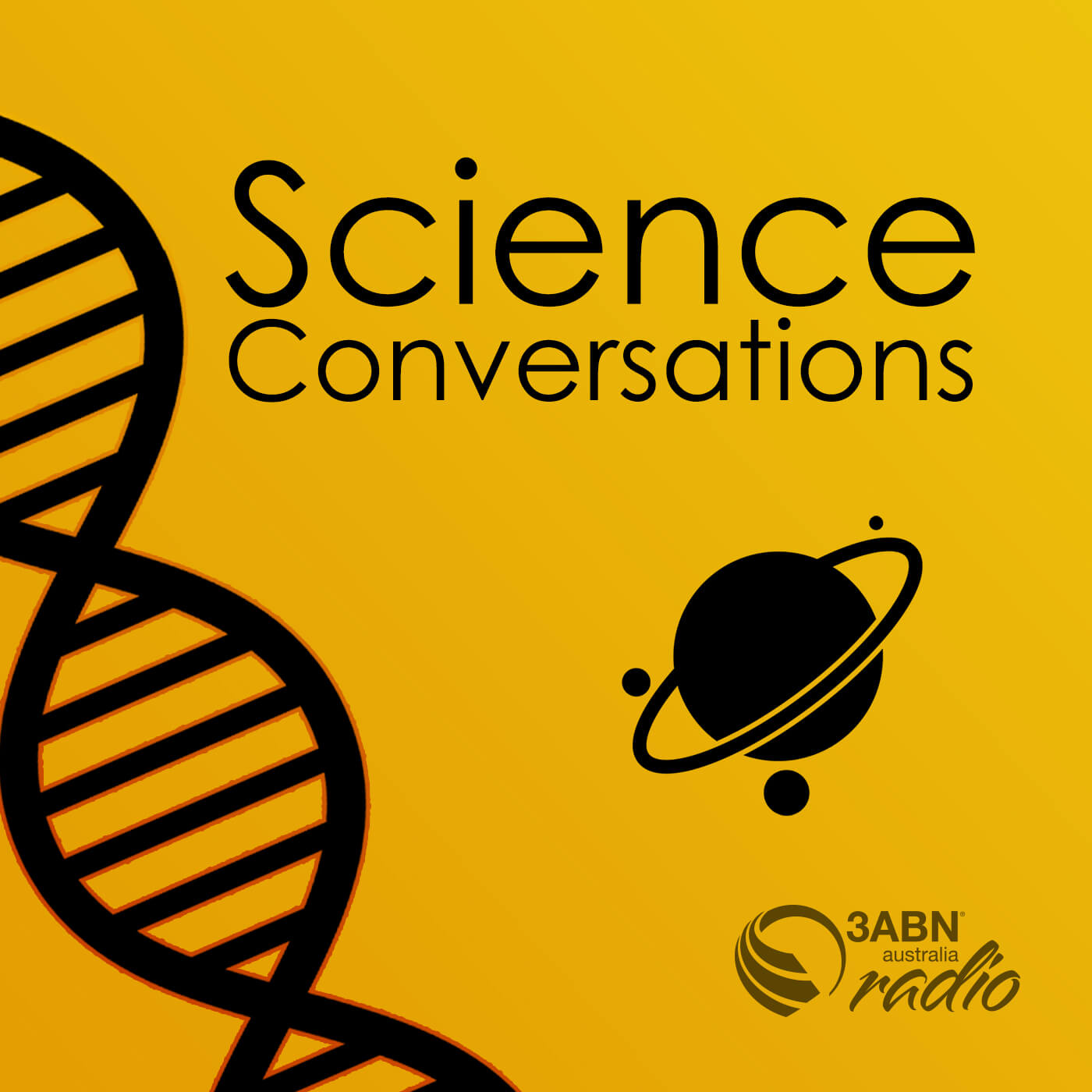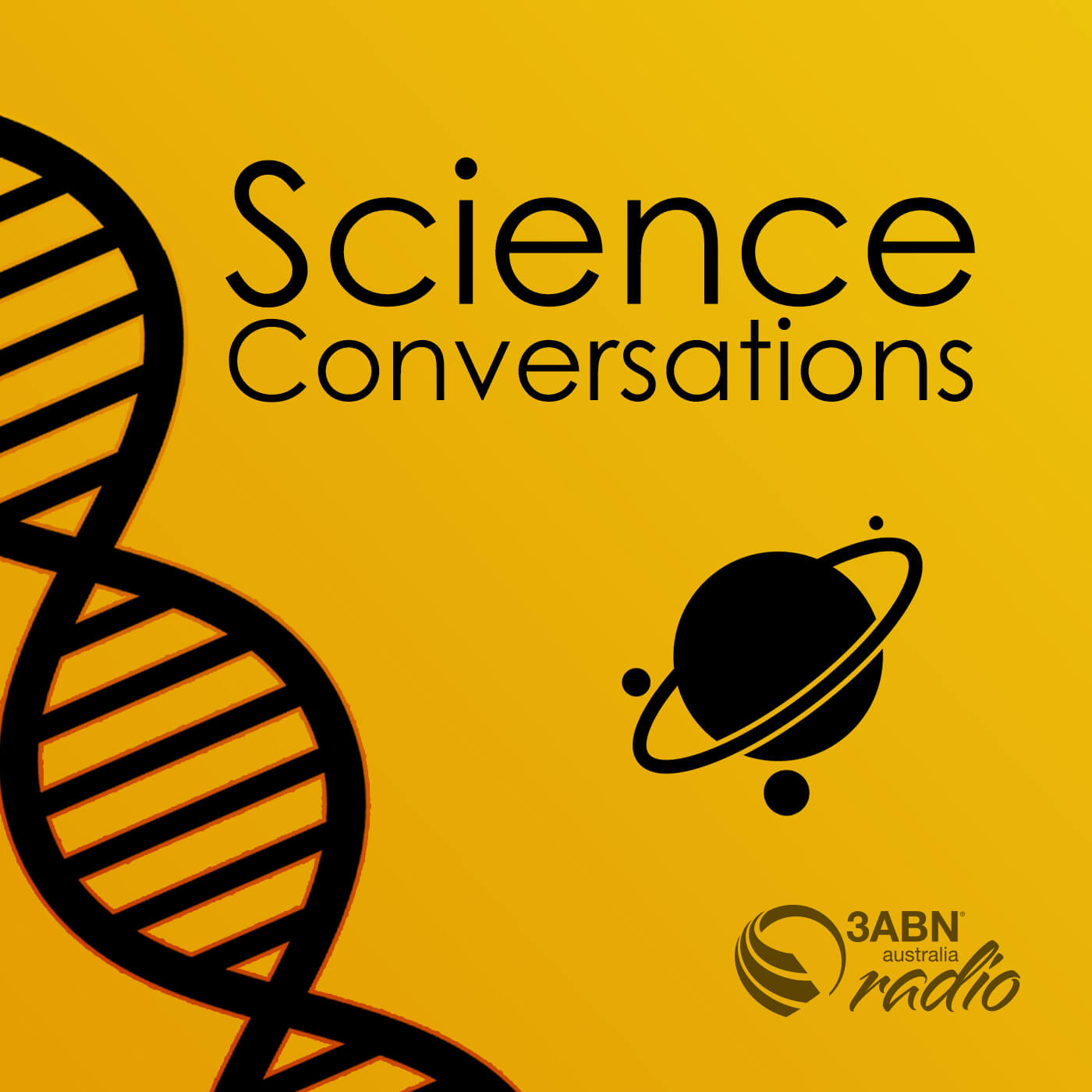Episode Transcript
SPEAKER 1
Welcome to Science Conversations. I'm Kaysie Vokurka. Are there any scientists that believe in creation? Joining me to discuss part one of this topic is Dr. John Ashton. Welcome to the program, Dr. John.
SPEAKER 2
Hello, Kaysie.
SPEAKER 1
Dr. John has written a book entitled Evolution Impossible: 12 Reasons why Evolution Cannot Explain the Origin of Life on Earth, and we'll be referring to his book as part of this program. Now, Dr. John, with the widespread acceptance of evolution and the general regard for it to be factual in society, why aren't scientists pointing out the issues with evolution?
SPEAKER 2
Yeah, so this is a question I guess people would want to ask, but in fact I've found out there are quite a large number of scientists, and particularly eminent scientists, that are speaking out.
SPEAKER 1
Against.
SPEAKER 2
The theory of evolution and raising concerns about this. It's quite interesting in that a similar question was asked back in the late 1990s at Macquarie University in New South Wales. A number of scientists who were creationists gave a presentation at the university. And one of the, a I think a scientist, Dr. Alex Ritchie, who's creator of the Sydney Museum at the time, stood up and said to the chairman, well, look, I don't believe any practicing scientist with a doctorate would believe in a literal six-day creation. And the chairman said, well, there's John Ashton, Dr. John Ashton, who's the chief chemist at the Australian Food Research Laboratories, and he mentioned the name of another scientists that worked at the Atomic Energy Commission in Sydney. And so that led me to then write to other scientists and ask them why, what were the reasons that they chose to believe in creation and reject evolution. And that then became the book In Six Days: Why 50 Scientists Choose to Believe in Creation. As I wrote to science, I had about 80 scientists reply.
SPEAKER 1
So these are scientists with doctorates who believe in creation?
SPEAKER 2
Yes, sure.
SPEAKER 1
The very thing which Macquarie, they said, oh, there wouldn't be any of those.
SPEAKER 2
Yes, that's right, yes. And so, yes, so I wrote to them. I got about, as I said, about 80 replies, ended up getting about 70 chapters, but a lot of the chapters were very long. And what I did was I left out articles by scientists who had written books because their material was already out there.
SPEAKER 1
Yes.
SPEAKER 2
And so just to include the others. And that, as I said, became the book In Six Days, while 50 scientists choose to believe in creation. And yes, that's been a strong seller. Over 25 years later now, it's still a strong seller on Amazon, being translated into a number of languages and certainly catalysed a lot of debate. But a lot of other books and other scientists, particularly since that time, have published works. For example, there's Dr. Robert Herriman, who was a former professor of mathematics at the United States Naval Academy. Now he has an extensive website where he puts up very, very strong evidence against evolution. and is very strongly in favor of young earth creation. He was one of the United States top mathematicians. And then, of course, there was John Stanford. He was a geneticist, was involved in the development of the gene gun to promote genetic engineering. He did a lot of work on mutations and mutation rates. And he published a book, Genetic Entropy and the Mystery of the Genome, where he argues that, you know, the genetic codes in living organisms can't be more than about 100,000 years old at max, otherwise there'd be accumulation of mutations. Another professor of zoology, Dr. Walter Veith, who was a professor of zoology at the University of Cape Town, or no, at at the University of Western Cape. He had his doctorate from the University of Cape Town. He put out a book, the Genesis Conflict, putting the pieces together. And again, he strongly argues that evolution is impossible and couldn't have occurred. Then there was Dr. Duane Gish. Again, I didn't include his article in the book. He had a PhD in biochemistry from the University of California at Berkeley. and he taught at the University of California, Berkeley, and also at Cornell University. And he put out a couple of books, Evolution, the Fossils say no, and Evolution, the Challenge of the Fossil Record, again arguing that there was a lack of scientific evidence for evolution actually in the fossil record. He was a very clever biochemist. I actually saw him debate the Professor of Medicine at the University of Tasmania when he was over here in Australia. And the Professor of Medicine had absolutely no answers for the argument that Dr. Gish was putting up. He also gave a very impressive presentation at the University of Melbourne, which caused, yes, quite a lot of controversy afterwards, again, because people couldn't refute the arguments that he was presenting. And it created quite a stir. Another one, of course, George Jäger, who was a professor of biochemistry at Loma Linda University School of Medicine, had a PhD in biochemistry from Columbia University. He was a world authority on E. coli, and he put out his book, Evidences for Creation, called Natural Mysteries Evolution Cannot Explain. And again, he was a very prominent biochemist, had done a lot of research, particularly in the area of E. Coli, understanding all the mechanisms, biochemistry of these very simple organisms, bacteria. And again, showed in his book on the basis of this biochemistry that we now know evolution was absolutely impossible. could not occur, could not produce the new body parts or the new biochemical systems. Another guy, Colin Mitchell, PhD in geography from Cambridge University. He'd been a specialist consultant in sort of geographical matters to a number of countries around the world. And he put out the book, the Case for Creationism. and again, he summarized the evidence from biology, paleontology, geology, and radiometric dating that demonstrated that evolution was impossible and the evidence all pointed to creationism. So these are top scientists recognized in their fields, highly recognized in their field. Another one was Dr. Lee Spetner, held a PhD in physics from Massachusetts Institute of Technology. taught information and communication theory at John Hopkins University for 10 years. So again, trained at one of the top universities in the world, taught at a leading university in the United States, and put out the book, Not by Chance, Shattering the Modern Theory of Evolution. And again, he demonstrated with his extensive background in mathematics and statistics that it was absolutely impossible for mutations to produce the new genetic codes that biologists wanted to occur. So these guys are all putting out their evidence there. It's out there in books. Dr. Andrew Snelling is a research geologist, PhD in geology from the University of Sydney. He authored a 1,000-page plus volume Two-volume work titled Earth's Catastrophic Past: Geology, Creation and the Flood. Gaius provided powerful evidence for a young Earth and for Noah's Flood being a recent worldwide catastrophe. So again, highly qualified geologist. Another one, Dr. Ariel Roth, PhD in zoology from the University of Michigan. He'd been the chairman and professor of biology at LaMotte University for many years. He'd been editor of the journal Origins for many years, had a number of government research contracts awarded to him. He put out the book Origins, linking science and scripture again, provides a tremendous overview of the evidence for creation as opposed to evolution. And he has a website there. Another top scientist in his field, Dr. Werner Gitt, holds a doctor of engineering from the Technical University of Aachen in Germany, served as director and professor at the German Federal Institute of Physics for many years. A world authority on information theory put out his book in the beginning was information. and he argues powerfully that evolution could occur, that the amount of information in the code could not arise by random mutations. So these are top experts in their fields putting this out there, putting out the evidence in detail, but it's being ignored. It's being ignored by the academy. They're just blindly holding on to the theory of evolution and continuing to you know, teach it in universities and that despite this overwhelming evidence from highly qualified scientists, experts in their field, consistently pointing out that it's absolutely impossible.
SPEAKER 1
And these are interesting because they're these qualified scientists are from various countries, various different universities, they've got various different specialties, like there's quite a lot of diversity here from which perspectives they're coming from too.
SPEAKER 2
Yeah, and their top universities are, you know, MIT, University of London, Cornell, and so forth.
SPEAKER 1
Yes.
SPEAKER 2
Another one, Dr. Andy McIntosh, Doctor of Science degree in maths from the University of Wales, as well as PhDs. He's a professor of thermodynamics and combustion theory at the University of Leeds. He's an expert on the defence mechanism of the bombardier beetle. and especially on the study of flight because he's involved in the development of engines for aircraft. And he again argues in his book Genesis for Today and looks at the overwhelming evidence of design that cannot be a result of random chance mutations. It's quite interesting that in 2009, Dr. McIntosh published a groundbreaking research paper in the International Journal of Design, Nature and Ecodynamics, which showed that biological structures contain coded instructions that are not defined by matter and energy of the molecules carrying the information. Therefore, the genetic information required to code for complex structures like proteins requires this information to come from external sources of information and cannot arise from natural environmental factors.
SPEAKER 1
That's fascinating.
SPEAKER 2
A mutation. So here we have, again, one of the top mathematicians in the world pointing this out. And so, you know, there's... and we could go on. Dr. John Harna, PhD in physics from the University of Western Australia. where he currently serves as a research professor of physics. Again, he authored a book again demonstrating that the Big Bang was impossible essentially. And another guy, Dr. Danny Faulkner, professor of astronomy and physics at the University of South Carolina in Lancaster, authored the book Universe by Design. and explains the arguments for a created universe. And also there's been scientists that have come to reject evolution as they've read this material and realized, you know, for example, Dr. Richard Smalley, PhD from Princeton University, a Nobel Prize winning chemist, Nobel Prize winner, came to reject evolution and supported evolution, I mean supported creation in public lectures. So publicly stated, he's rejected evolution as being impossible, now supports creation. So people need to, you know, understand another guy, of course, is James Tour. In recent times, one of the most highly cited synthetic chemists in the world. On his websites, again, points out and debates this. But this information isn't getting out to students. It's not getting out to educators. The curriculums are narrowing and focusing down and insisting that they keep teaching this to children right from Kindy onwards. And to me, it's morally wrong.
SPEAKER 1
Yeah. And it's very good to know that the evidence is out there and people are speaking out despite the mainstream flow. Well, we're going to discuss more about this in our next couple of sessions. looking forward to that. And next time we're going to continue to examine the question, are there any scientists that believe in creation? Be sure to join us.


